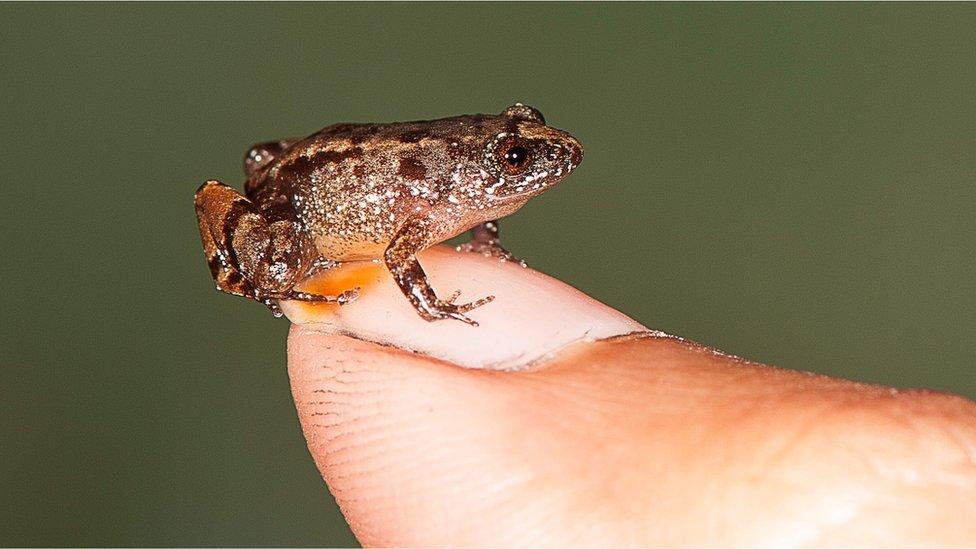Tiny frogs named after Charles Darwin flown to London for safety
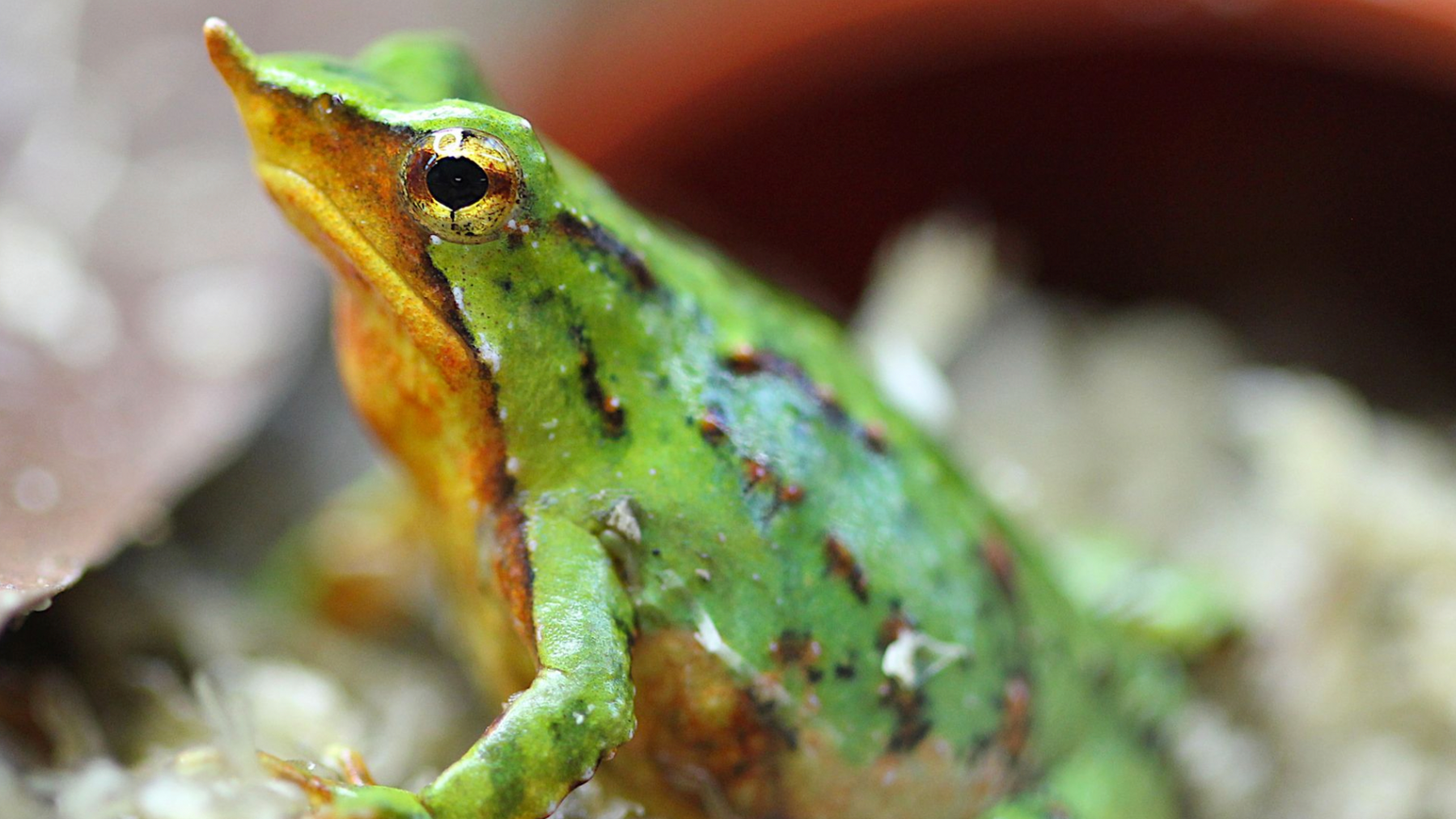
- Published
They are one of the world's most iconic amphibians, named after the famous evolutionary scientist Charles Darwin.
Darwin's frogs are under 2 centimetres long and are recognisable by their distinctive, pointy noses.
But they are now facing threats which are drastically reducing their numbers.
They are considered vulnerable by the International Union for Conservation of Nature.
Now a global effort is being made to save them from a deadly fungus, spread by humans in southern Chile.
Rare frogs saved from Australian bushfires to be released
- Published19 April 2022
Mountain chicken frogs at risk of extinction, charity warns
- Published19 October 2023
New hope for endangered Loa water frogs
- Published22 October 2020
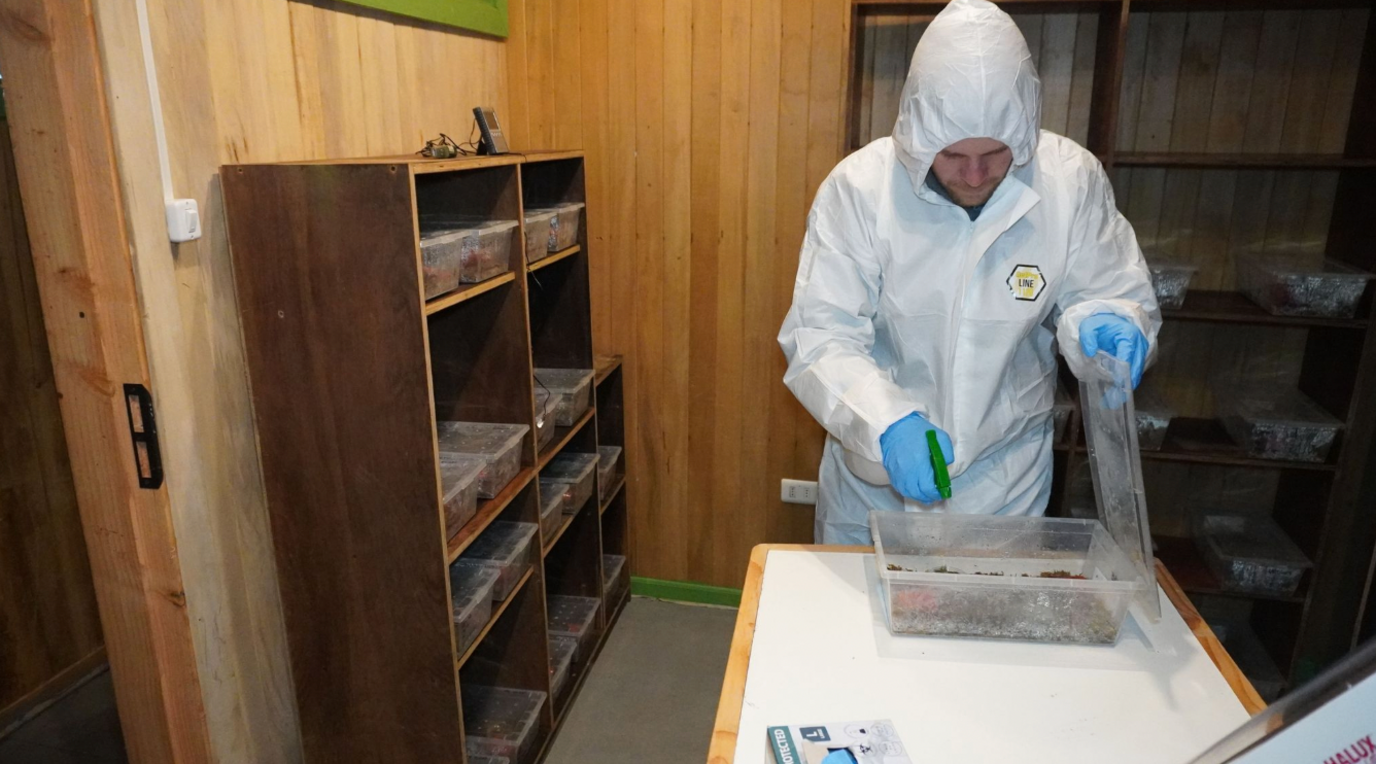
Conservationist worked hard to create the correct environment for the frogs before they flew
In southern Chile, the frogs once had a stable population.
But the spread of a deadly fungus called the chytrid fungus means their population has fallen by 90% in just one year.
Conservationists organised a rescue mission which included capturing and flying 53 of the tiny frogs to London Zoo.
It's hoped that the newly-arrived population will thrive and reproduce to eventually support reintroduction efforts in Chile.
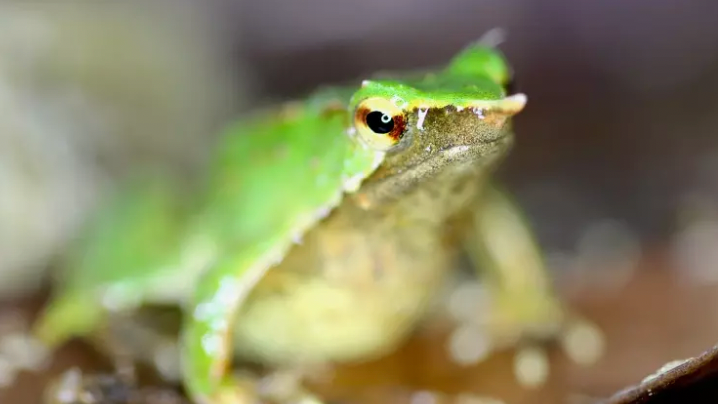
The frogs were flown from Chile to London
Andres Valenzuela-Sanchez, from the Institute of Zoology who lead the project, said: "Moving 53 Chilean frogs to London was no small feat—it took meticulous planning and more than a few sleepless nights!"
But he added that the experience has been a positive one for the frogs, who are already adapting to life in London Zoo.
"The frogs are settling in fantastically well in their new home, and we're hopeful that this rescued population will thrive."
- Published16 July 2024
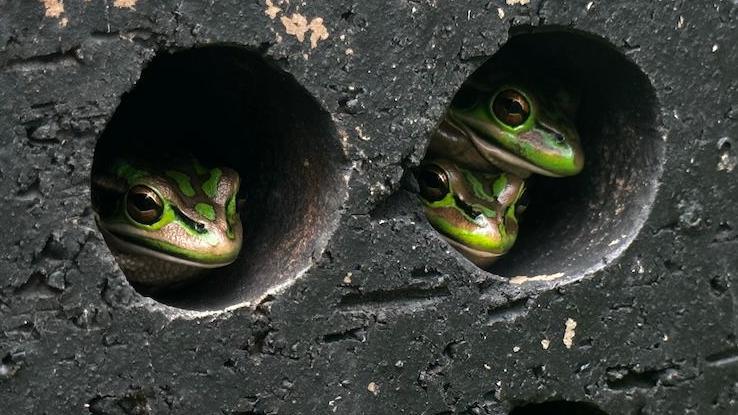
- Published26 April 2022
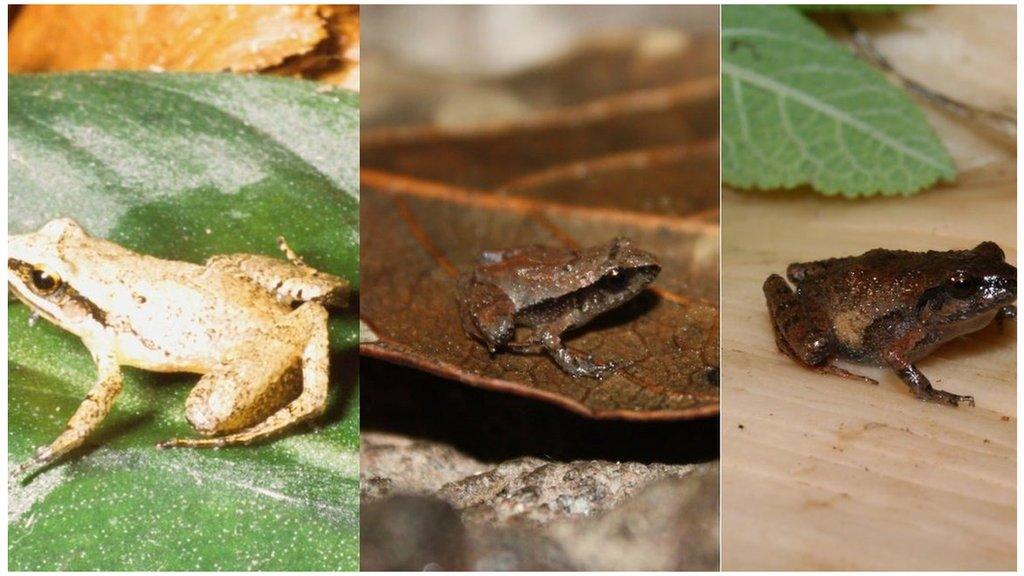
- Published22 February 2017
